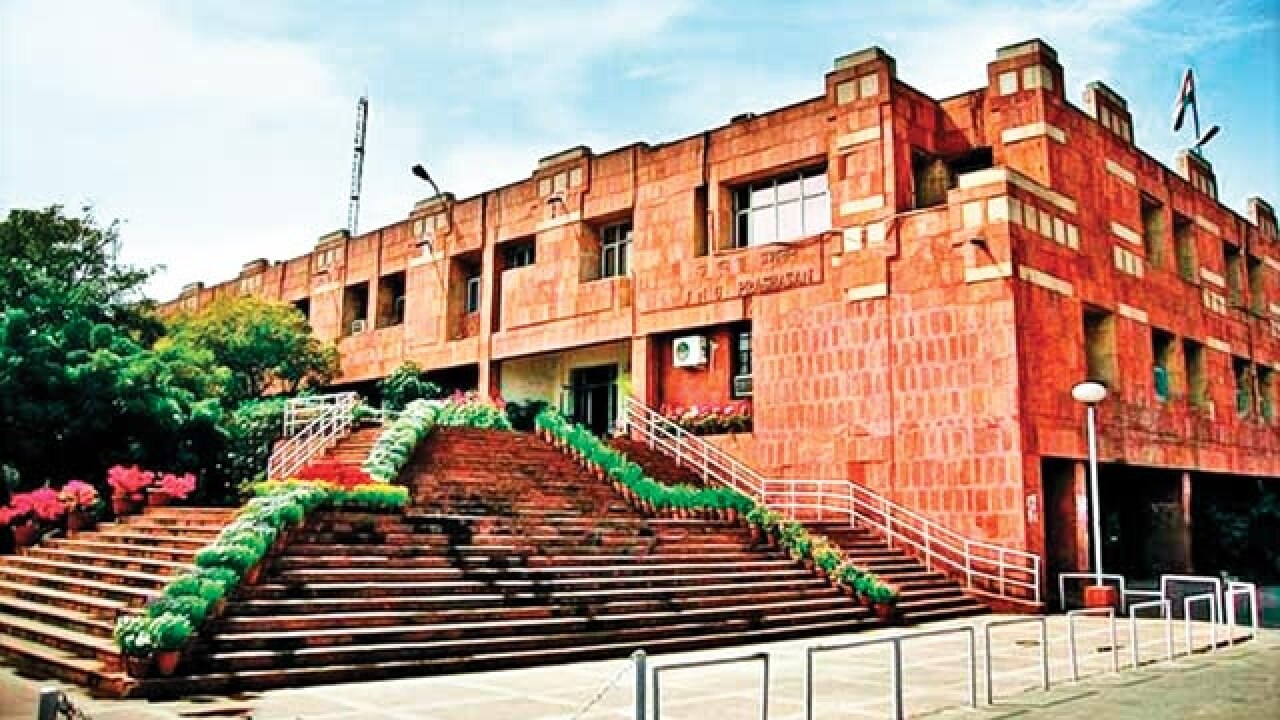
If one thing is abundantly clear in the on-going turmoil in JNU, it is the utter marginalisation and isolation of the radical and extreme elements. True, the organised Left controls both the students and teachers unions. As to the latter, their clean sweep is possibly not so clean. The top positions have been occupied by walkovers, without any voting. Designated by the oxymoronic term, ‘elected unopposed’, it is now their turn to escalate matters after the Students Union’s occupation of the admin building. I see more trouble in the days ahead. However, neither union enjoys unconditional support nor legitimacy on campus.
Outside the campus, in the larger world i.e. India, what the JNU potboiler has invoked is nothing short of derision and rage of both the masses and classes. This is quite contrary to wish-fulfilling fantasies, fomented by media notables colluding with sections of the Opposition, of a mass-movement against the Modi Sarkar, during the heyday of the agitation last year. Today, most responsible, tax-paying citizens have run quite out of patience: they’d rather want the university to close down than put up with any more dharnas, illegal blockades of buildings, and never-ending shenanigans of the Lefties. Not surprisingly, on campus too, most students and teachers loathe the prospect of the crisis worsening.
Unfortunately, even if not a definite shutdown, we are staring at delayed or cancelled admissions, following a bitter confrontation between the students and teachers unions and the university administration. What is more depressing is that such an outcome actually appears to suit some. Why? Because this is the last-ditch stand of the radical Left. If they are defeated, losing whatever little prestige or credibility they have, they will be utterly dispossessed. They will have nowhere to go.
Which is all the more why these times are dangerous. If they can’t be winners, the radicals may yet be spoilers. If JNU can’t be theirs, they won’t let it be anyone else’s either. As adversaries, the organised Left cannot be taken lightly, at least in JNU. Beyond their usual nuisance value, they also have real gifts, not just intellectual and artistic, but also strategic. They are not lacking in courage, even if they may be in conviction. What is more, they have a proven track record of persistence, determination, and unscrupulousness. They cannot be simply brushed aside: having captured the ‘pink palace’, they will not vacate it peacefully.
Their occupation of the admin building actually reminds me, in some respects, of the endgame in Rang De Basanti. Superimposing their fight against the state with that of revolutionaries like Bhagat Singh, Chandrashekhar Azad, and Ramprasad Bismil, the youthful rebels in the film occupy the All India Radio Building. Finally, in a bloody standoff with the authorities, they are gunned down by commandos. While matters are nowhere as dire in JNU, we must also not underestimate how, being thus cornered and provoked, the romantic dreams of the student leaders of courting real or symbolic martyrdom may be stoked.
It may also be convenient to the JNU administration to let matters slide awhile. After last year’s miscalculations, they wouldn’t want to use the iron fist lest it provoke a backlash, especially during election time. No point giving the Opposition such wished-for traction. As to the protesters, some will continue being anti-establishment no matter how many demands, justified or otherwise, are met.
Besides, all discerning parties know that there are unresolved, even controversial, issues in the UGC notifications. To build a university-wide consensus on them will take a long and demanding multi-level consultative process, for which there is simply no time just now, with the new admissions about to be announced. The implications go farther than rationalising or streamlining the number or allocation of PhD candidates. At the least, JNU, MPhil, PhD admissions will change from a two-step (written+oral) to a three-step (qualifying, written+oral) process. The cut-offs of the qualifying, it is alleged, will dilute statutory reservations. If they are not intended to, why have a qualifying exam when the written test at present serves that function? In addition, the Academic Council meeting accepting the UGC communication is disputed.
Fundamental to the controversy is the deeper issue of university autonomy: is JNU bound by whatever the UGC dictates? JNU sees itself as a leader, not a follower. The UGC, on the other hand, has hardly been the source of good, let alone game-changing or cutting-edge, ideas. Underlying the on-going struggle, thus, are not just two ideologies, but also two ideas of what JNU is.
The first attitude I would call exceptionalism: JNU as unique institution, extraordinary, distinctive, therefore not only worth preserving, but irreplaceable. The mirror opposite of such inflated self-praise is the notion gaining ground that JNU is exceptionally degenerate, a den of shiftless parasites or anti-national vipers, fit only to be purged, cleansed, or bulldozed. Less harsh but ultimately similar is the argument that JNU is not just commonplace or ordinary, but utterly undeserving of any special treatment. It should be straightened out if not mercilessly levelled.
The truth, as usual, lies in between. Of course, JNU must measure up, not just to fair but best practices implemented elsewhere. On the other hand, like many institutions of national importance, JNU has it own distinctive character and contribution, not reducible just to its ideological or political hues. How to safeguard, even enhance, its real capacities and achievements while reducing its drawbacks and problems? That, in brief, is the real challenge. If faced squarely and sincerely, it may lead to the transformation of JNU, saving it from being destroyed before our eyes, as many institutions of excellence have been over the years in India.
The author is a poet and professor at JNU, New Delhi